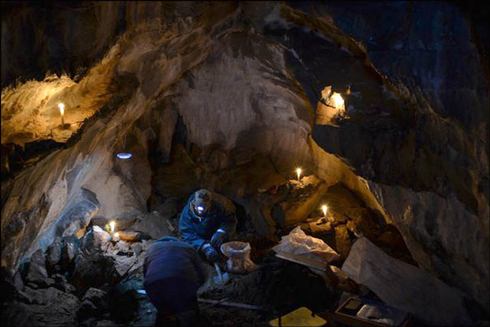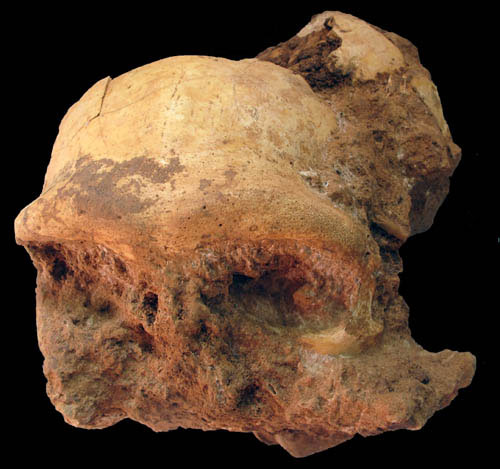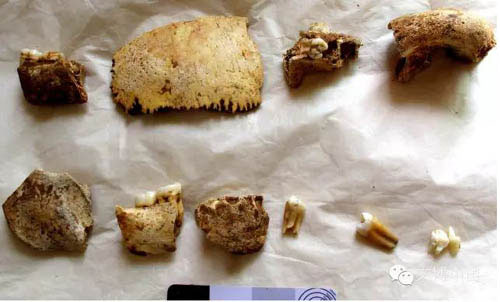Did Humans Evolve Independently in Asia?
Asia’s Role in Human Evolution May Be More Significant
Scientists from the Institute of Vertebrate Palaeontology and Palaeoanthropology (IVPP) have challenged conventional theory by claiming that humans may have evolved independently in Asia as well as Africa.
Asia’s role in our own evolution may be underestimated, that is the verdict given by Research Fellow Zhao Lingxia (IVPP) who led a field team exploring the limestone caves of Bijie, in south-west China’s Guizhou Province. Three hominin teeth the team found in one of the caves were discovered in sediments that have been dated to 178,000 years to 112,000 years ago, some 70,000 years or so earlier than when the first modern humans (H. sapiens) are believed to have entered western Europe. The study has been published in the Chinese academic journal Acta Anthropologica Sinica.
Scientists Study Caves Around the World to Gain a Better Understanding of Human Evolution
Picture credit: Pavel Kosintsev
Tentative Dates
Before anthropologists re-write human history, more work needs to be done to establish the true age of the ancient teeth. Re-distribution of the sediments and geological upheaval may have skewed the estimated dates. However, other recent fossil finds (October 2015), by Zhao’s colleagues, Liu Wu and Wu Xiujie, from Hunan Province (central China), indicate an age of perhaps as old as 120,000 years. The forty-seven teeth found in Daoxian county (Hunan Province) remain the oldest fossils of modern hominins to have been found in eastern Asia.
Commenting on the significance of these ancient human remains, Liu Wu stated:
“There is overwhelming evidence from the fossil record that China was populated with humans before the arrival of African settlers.”
Homo erectus in China
According to a number of Chinese media agencies, the fossilised skull of a Homo erectus was found in Dongzhi county in Anhui Province (eastern China). The skull has been tentatively dated to 150,000 to 412,000 years ago. A number of H. erectus sites are known from China (Shaanxi Province, Jiangsu Province as well as Anhui Province) and a spokesperson for the IVPP stated that over the last decade our understanding of human evolution in eastern Asia had been revolutionised. Human fossils have been discovered across much of southern China. Many of these fossils date back 100,000 years or more, but share similar anatomical features with modern Chinese people.
Homo erectus Skull found in China
Picture credit: Chinese Academy of Sciences
Stone tools found in association with a number fossilised bones indicate that there was a thriving stone tool manufacturing culture in this part of the world. However, it was distinct from what has been identified from African migrants into the Near and Middle East and into Europe.
The stone tool cultures and the large amount of ancient hominin fossils uncovered in China suggested a “seamless evolution” toward the present-day Chinese people. Even if the arrival of African migrants might have introduced certain new genes, no replacement or mass extinction had happened. There is a growing consensus that the evolutionary story in Asia is much more interesting than previously considered.
A Forgotten Continent
Renowned palaeoanthropologist Chris Stringer (Natural History Museum – London), stated that Asia has been a forgotten continent.
Professor Stringer said:
“Its role in human evolution may have been largely under-appreciated.”
A Selection of Homo erectus Fossils from China
Picture credit: Chinese Academy of Sciences
Homo floresiensis
A discovery made in 2003 in a cave on the Indonesian island of Flores led to the establishment of a new type of early human species – Homo floresiensis. Their diminutive size led this hominin species to be nicknamed “Hobbits”. The discovery of H. floresiensis demonstrates that our evolutionary history may yet reveal some intriguing surprises.
Homo floresiensis (female based on skeletal remains LB1)
Picture credit: Reconstruction of female H. floresiensis based on LB-1 fossil material by John Gurche
To read an article suggesting that modern humans may have driven H. floresiensis to extinction: Did H. sapiens’s arrival make H. floresiensis extinct?





